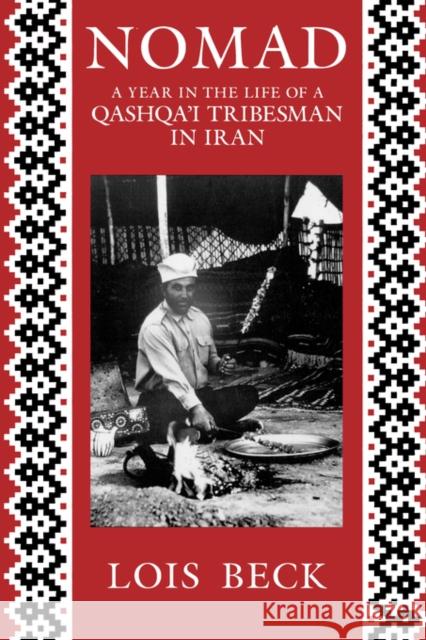Nomad: A Year in the Life of a Qashqa'i Tribesman in Iran » książka
Nomad: A Year in the Life of a Qashqa'i Tribesman in Iran
ISBN-13: 9780520074958 / Angielski / Miękka / 1991 / 482 str.
Borzu Qermezi was the headman and political leader of a group of nomadic pastoralists who were part of the Qashqa'i confederacy of southwest Iran. Proud, complex, strong-willed, witty, and cunning, Borzu successfully led his people on their annual migrations for many years. He regulated their travel; mediated conflicts; intervened in (and sometimes exacerbated) tense situations between his people and other nomads; and dealt with the government police agency. Structuring the account around the four seasons, Lois Beck recounts the day-to-day activities of Borzu during the year she spent traveling with his people. She describes the rigors of nomadic life and the consequences of decisions made in haste.
During 1970 to 1971, Borzu and his people were faced with many difficulties. When the expected winter rains did not fall, pastures and crops shriveled. Unable to sell their starving livestock for any profit, Borzu's people saw their debts to urban merchants and moneylenders increase. At the same time, Iran exercised more bureaucratic control over the Qashqa'i by applying new policies over migratory schedules and the allocation of scarce pastures, and by introducing non-Qashqa'i agriculturalists and livestock investors as legitimate land users. All these measures threatened the nomad's way of life and eventually undermined the role of headmen such as Borzu. Lois Beck details the vicissitudes endured by Borzu's people and the strategies he devised to cope with them. Blending ethnographic and historical material, this book contains information unavailable for other tribal and nomadic pastoral groups in the Middle East and central Asia. Through Beck's deft analysis, we come to understand why nomadic pastoralism was once an important part of this vast region, and why tribal society has endured.










